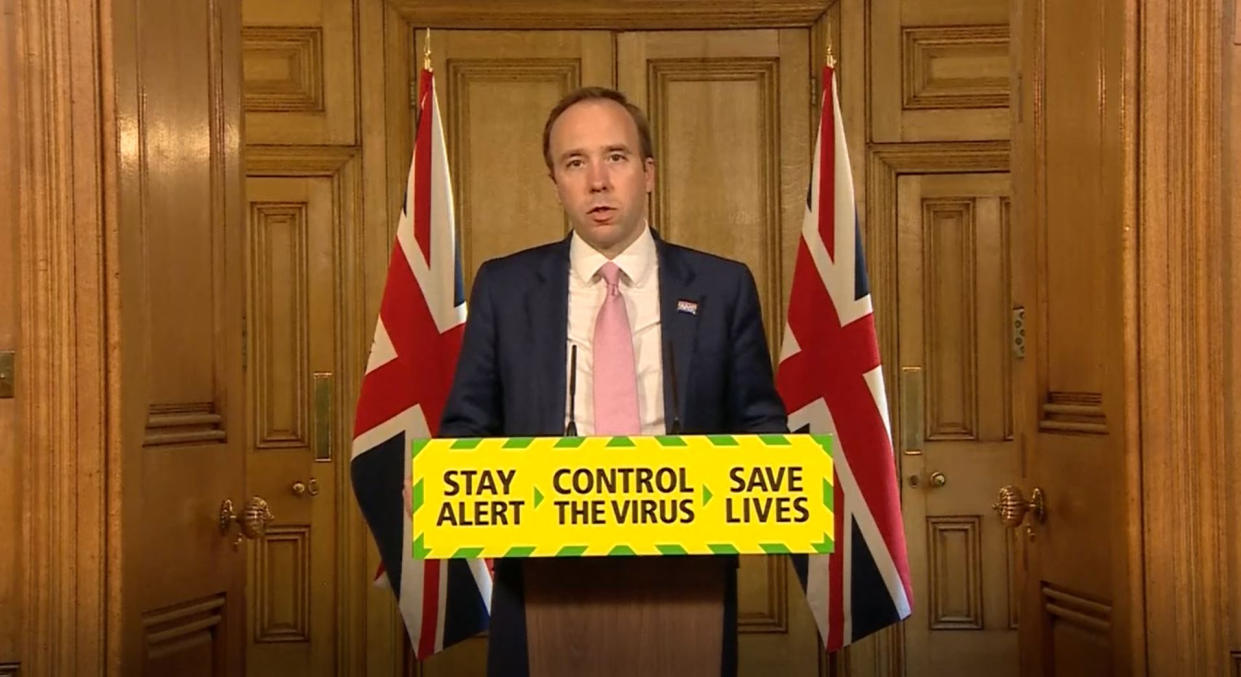Coronavirus: Government has not decided if vaccine will be mandatory

The government has not decided if a coronavirus vaccine will be mandatory, health secretary Matt Hancock has said.
No COVID-19 vaccine currently exists, though research programmes are ongoing across the world.
Hancock, asked by a member of the public if a vaccine will be compulsory if one is developed, said the government has “not addressed” the issue yet.
It’s a contrast to comments Hancock made on 4 May, when he suggested a vaccine would not be made compulsory.
He had said: “I think the extent of the public’s reaction to following the lockdown shows we will be able to achieve very very high levels of vaccination without taking that step.”
But speaking at the government’s daily coronavirus press conference in Downing Street on Thursday, Hancock said: “We will only recommend a vaccine if it is safe and that means if we get a vaccine – and I very much hope we will – and people are asked to vaccinate, then they absolutely should, because we will only do it on the basis of clinical advice that it’s safe.”
“The question of whether it’s mandatory is not one we have addressed yet.
“We are still some time off a vaccine being available. I would hope – given the scale of this crisis, the overwhelming need for us to get through this and get the country back on its feet, and the very positive impact a vaccine would have – that everybody would have the vaccine.”
It comes amid small pockets of anti-vaccination protesters campaigning in the UK and abroad.
The UK government has poured millions of pounds into top vaccine programmes at Oxford University and Imperial College London.
However, a top social scientist has warned “hope and hype” surrounding vaccine coverage risks undermining public trust.
Robert Dingwall, professor of sociology at Nottingham Trent University, said on Wednesday: “There is a particular danger here if the delivery comes quickly that it may disappoint in terms of what can be achieved, relative to the hype – possibly partial protection for a limited period, compared with the lifelong immunity of some childhood vaccines.”
Coronavirus: what happened today
Click here to sign up to the latest news, advice and information with our daily Catch-up newsletter
Read more about COVID-19
How to get a coronavirus test if you have symptoms
What you can and can’t do under lockdown rules
In pictures: How UK school classrooms could look in new normal
How public transport could look after lockdown
How our public spaces will change in the future
Help and advice
Read the full list of official FAQs here
10 tips from the NHS to help deal with anxiety
What to do if you think you have symptoms
How to get help if you've been furloughed


